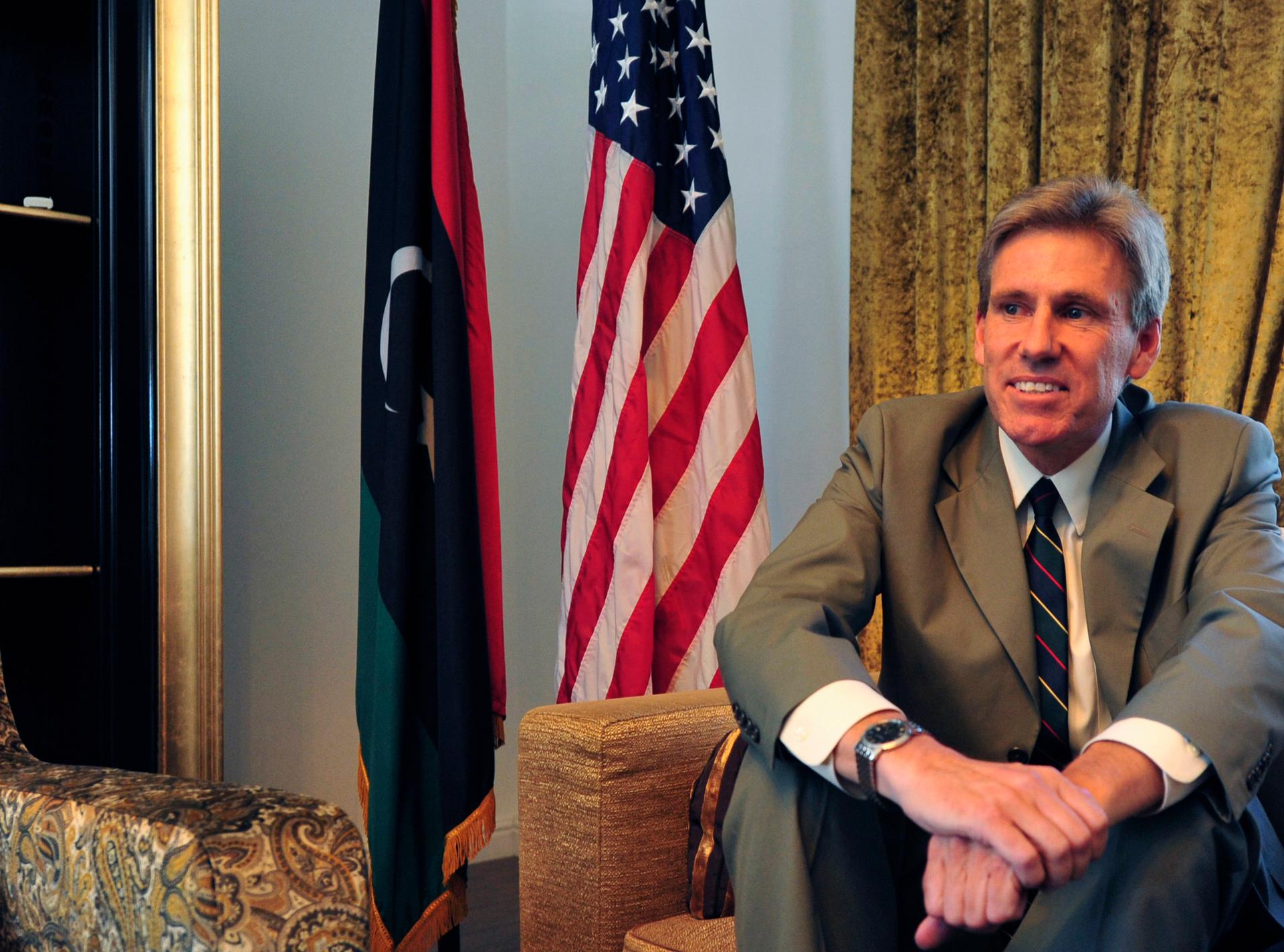In losing Ambassador Stevens, U.S. loses an ace in Middle East
Christopher Stevens, the U.S. ambassador to Libya, pictured at his home in Tripoli on June 28, 2012, was killed in an attack on the U.S. consulate in Benghazi on Tuesday. (Photo by Esam Al-Fetori/Reuters.)
Ambassador Chris Stevens was known as an exceptional diplomat who valued contact with regular people.
Many who worked with him years ago in Jerusalem were shocked to learn that Stevens was killed in the line of duty in Benghazi, Libya last week. He was political officer at the U.S. Consulate in Jerusalem from 2002 to 2006, in addition to having served in Cairo, Damascus and Riyadh.
Veteran Palestinian negotiator Saeb Erekat said Stevens was an outstanding diplomat and a good friend. Erekat said he has had a hard time dealing with the news of his death.
“I was shocked,” he said. “The first thing I did, I called my wife because she knew him very well. And I told her the bad news and she wanted to know why. I said, ‘there’s no reason. He was just murdered in an ugly act of terror.’”
Erekat said what made Stevens such a successful diplomat was his ability to listen and learn from people in the Arab world.
“I sat with Chris hours upon hours speaking nothing but Arabic. He did a brilliant job to improve himself, to get acquainted with our society, to know our culture,” Erekat said. “And what was he doing here? He was helping us, and of course he was helping his country. But at the same time he was trying to re-build Libya. And for this you get killed? That’s despicable act of murder that deserves condemnation. That’s it.”
Daniel Seideman, an Israeli attorney in Jerusalem, also got to know Stevens closely during his time in Jerusalem. When Seideman heard that an American diplomat had been killed in Benghazi, he worried it was Stevens because his friend was the kind of diplomat who was always pushing the envelope.
“He had the gravitas and the dignity of the diplomat, but he was not at all formal,” Seideman said. “He was out there. During the period that he was (in Jerusalem), (it) was the peak of the period of the suicide bombings. He was chafing at the bit. He wanted to be out there and very much felt the restraints imposed by the security. He really wanted to engage people.”
That came through in Stevens’ dispatches, said Michael Ratney, the current U.S. Consul General in Jerusalem. Ratney said he learned a lot about this complicated region by reading the daily diplomatic cables that Stevens was sending back to Washington.
“I would read about meetings he had in the West Bank and it was more than just words,” Ratney said. “You could smell the coffee he was drinking, and you could see the pictures on the wall and you could feel the furniture.
“You had a sense of what he was doing. You had a sense of who he was talking to. It was a wonderful skill,” he said.
But how much influence do American diplomats, even the truly brilliant ones, really have, especially when the big decisions are made back in Washington?
“Our strongest ambassadors in the field gave us policy advice and we listened to them,” said Nick Burns, a former diplomat who served Republican and Democratic administrations.
Burns, who now teaches at Harvard’s Kennedy School of Government, said high-level U.S. officials tend to listen to people who make sense, have informed views and have knowledge and expertise that is not matched by anyone based in Washington. He said this is particularly true in very difficult locations, such as the Middle East.
In the wake of Stevens’ killing, Burns said some in Washington are mistakenly questioning the need for so many American diplomats stationed across the globe.
“Even in this media-centered world, there is no substitute for ambassadors who can speak the language … who understand the politics and culture and history of a country, and who have formed the personal relationships with the people and leaders of that country,” he said. “So, diplomacy is very important to us.”
Security for U.S. diplomats is important as well, Burns said. But Washington needs more people like Christopher Stevens out there doing the tough work of American diplomacy.
